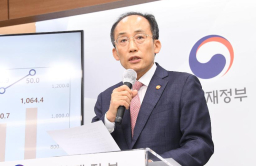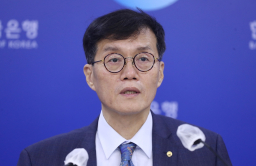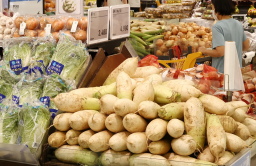-
KOSPI 2577.27 -2.21 -0.09%
-
KOSDAQ 722.52 -7.07 -0.97%
-
KOSPI200 341.49 +0.02 +0.01%
-
USD/KRW 1396 -2.00 0.14%
Korea’s record trade deficit adds to downturn concerns
Economy
Korea’s record trade deficit adds to downturn concerns
Gov't warns of economic slowdown as consumption, production and investment all decline while focusing on price stability for now
By
Sep 01, 2022 (Gmt+09:00)
2
Min read
News+
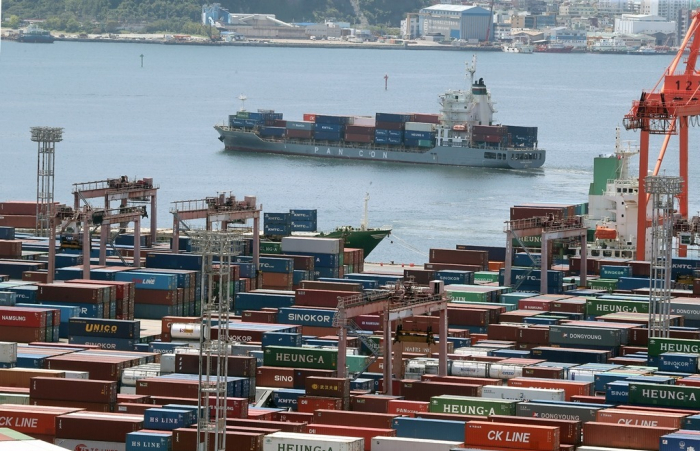
South Korea logged a record monthly trade deficit in August with the longest spree of shortfalls in more than 14 years, while domestic consumption, production and investment all declined in July, adding to worries about a slowdown in Asia’s fourth-largest economy.
The government warned of the growing downside risk, although the authorities remained focused on bringing the rampant inflation under control for now.
The country reported a trade deficit of $9.5 billion last month, the largest since it started compiling the data in 1966, according to the Ministry of Trade, Industry and Energy on Thursday. The nation suffered a shortfall for five months in a row, the longest deficit spree since the December 2007 and April 2008 period, just before the 2008-09 global financial crisis.
Imports jumped 28.2% to $66.2 billion from a year earlier as purchases of energy resources nearly doubled to $18.5 billion.
On the other hand, exports grew a mere 6.6% to $56.7 billion with overseas sales of semiconductors down 7.8% to $10.8 billion, the first decline in 26 months, on weaker demand and lower prices. South Korea is the home to the world’s two largest memory chipmakers – Samsung Electronics Co. and SK Hynix Inc.
The country reported a fourth straight month of trade deficit against China, its largest overseas market, with a shortfall of $380 million as imports of semiconductors from the mainland grew 16.3% during the first 25 days of August.
The outlook for South Korean exports remained sluggish as China, the world’s second-largest economy, has placed millions of citizens under renewed lockdown this week again and major central banks including the US Federal Reserve raised interest rates, hurting the world’s economy.
TRIPLE WHAMMY
The South Korean economy has yet to find relief from domestic economic activity. Industry output, retail sales and capital expenditures all fell in July for the first time in three months, separate data showed on Wednesday.
Industrial production eased 0.1% on-month overall with factory output down 1.3%, according to Statistics Korea. Production of semiconductors and machinery equipment each declined 3.4%.
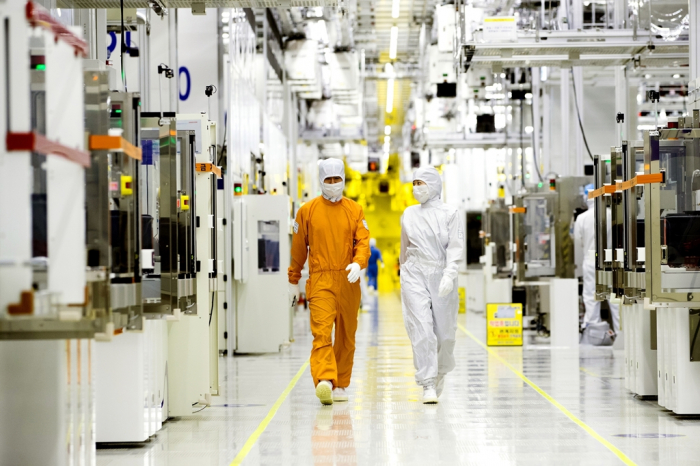
Retail sales dipped 0.3%, reporting a fifth consecutive monthly decline, as sales of durable goods and nondurable products fell 0.8% and 1.1%, respectively.
Capital expenditures slumped 3.2% with investments in transportation equipment such as aircraft down 6.9%.
“The uncertainties surrounding the economy in the future heightened due to sustained external difficulties such as global inflation, slowing growth and interest rate hikes,” said the finance ministry after the data.
Finance Minister Choo Kyung-ho has already warned of an economic slowdown.
“For now, price stability is the top priority of the policy, but we need to closely watch the economy as time goes by,” Choo said on Aug. 29 during a briefing on the 2023 budget proposal.
Bank of Korea Governor Rhee Chang-yong told The Korea Economic Daily on Aug. 27 that the central bank plans to keep raising interest rates to curb inflation but won’t keep pace with the Fed’s monetary policy tightening, given the downside risks in the economy.
Write to So-Hyeon Kim and Eui-Jin Jeong at alpha@hankyung.com
Jongwoo Cheon edited this article.
More To Read
-
Aug 30, 2022 (Gmt+09:00)
-
Aug 29, 2022 (Gmt+09:00)
-
Aug 25, 2022 (Gmt+09:00)
-
Aug 02, 2022 (Gmt+09:00)


